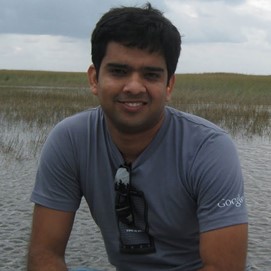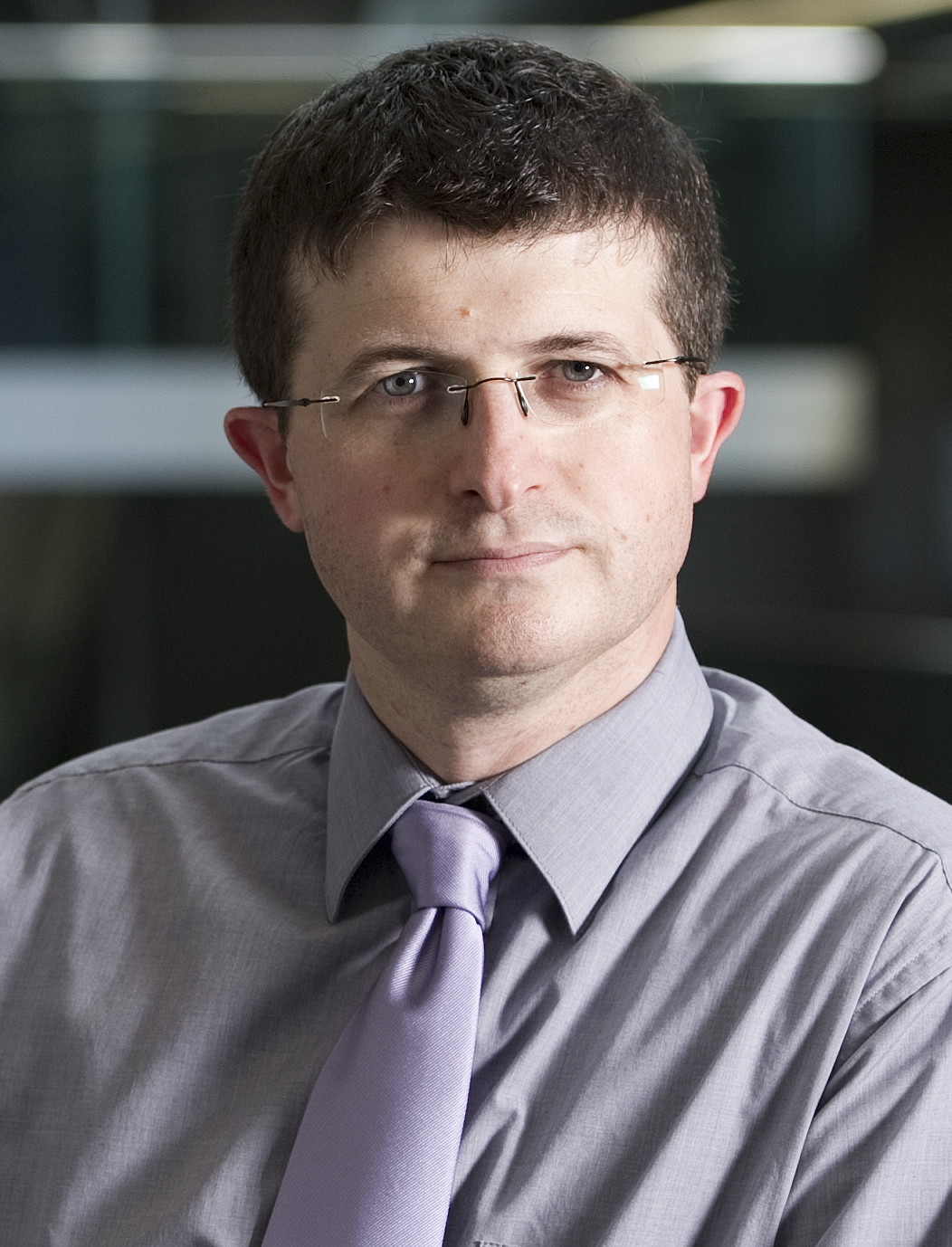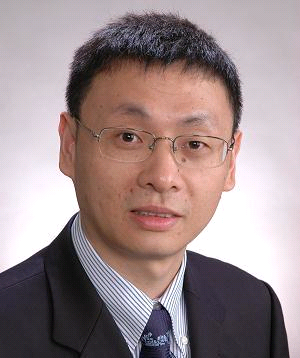Keynote Speakers
Deepak Chandra
Google's Advanced Technology and Projects (ATAP) organization, USA
Topic : MultiModal Smartphone Authentication
Slides : PDF
Videos : Part 1, Part 2, Part 3
Abstract
An average smartphone has 13 sensors that can continuously and passively monitor users' behavior. While each of these sensors by themselves are low fidelity, a combination of them could provide a level of authentication that is equivalent or greater than current passwords. The current multimodal research is hindered by lack a large multimodal dataset and geographically-dispersed research groups unable to collaborate. In this talk, Dr Chandra will discuss how it may be possible to overcome these research obstacles.
|
Brief Biography Deepak Chandra is currently the Program Lead in Google's Advanced Technology and Projects (ATAP) organization, where he heads all product, engineering, and design for mobile authentication projects. Google ATAP is a skunkworks-inspired team charted to deliver breakthrough innovations. Deepak defined company wide authentication strategy for Motorola prior to leading the efforts at Google. He has developed multiple wearable authentication products including Motorola Skip and Digital Tattoo. |
 |
Sébastien Marcel
Idiap research institute, Switzerland
Topic : Reproducible research in Biometrics: moving to the BEAT
Slides : http://www.idiap.ch/~marcel/professional/Talks.html
Videos : Part 1, Part 2
Abstract
Research in Biometrics is overwhelmed by the constant influx of new algorithms and techniques promising improved performance, generalization and robustness. However, reproducibility of results is often an overlooked feature accompanying publications and benchmark evaluations. The main reasons behind such a gap arise from natural complications in research and development of Biometrics: the distribution of biometric data is a sensitive issue for most countries and organisations; software frameworks are difficult to install and maintain; test protocols may involve a potentially large set of intricate steps which are difficult to handle. In this keynote, we will first explain and demonstrate why reproducible research is important and beneficial. Next we will review recent work in reproducible biometrics ranging from face and speaker recognition to spoofing and anti-spoofing. However, given the raising complexity of research challenges and the constant increase in data volume, the conditions for achieving reproducible research in the domain are also increasingly difficult to meet. To bridge this gap, we will present a biometry-independent platform for Biometrics research, development and certification. By making use of such a system, academic, governmental or industrial organizations enable users to easily and socially develop processing toolchains, re-use data, algorithms, workflows and compare results from distinct algorithms and/or parameterizations with minimal interaction. The keynote will present such a platform and will discuss some of its key features.
|
Brief Biography Sébastien Marcel received the Ph.D. degree in signal processing from Université de Rennes I in France (2000) at CNET, the research center of France Telecom (now Orange Labs). He is a senior research scientist at the Idiap Research Institute (CH) where he leads the Biometrics group and conducts research on multi-modal biometrics including face recognition, speaker recognition, vein recognition, as well as spoofing and anti-spoofing. In 2010, he was appointed Visiting Professor at the University of Cagliari (IT) where he taught a series of lectures in face recognition. Since 2013, he is a lecturer at the Ecole Polytechnique Fédérale de Lausanne on "Fundamentals in Statistical Pattern Recognition'". He was the main organizer of a number of special scientific events or competitive evaluations all involving biometrics, and serves as an Associate Editor for IEEE Transactions on Information Forensics and Security (TIFS). He is the co-Editor of the Handbook of Biometric Anti-Spoofing published by Springer. He is Guest Editor of the IEEE TIFS Special Issue on Biometric Spoofing and Countermeasures and of the IEEE Signal Processing Magazine Special Issue on Biometric Security and Privacy. Sébastien Marcel is also the principal investigator of international research projects including MOBIO (http://www.mobioproject.org), TABULA RASA (http://www.tabularasa-euproject.org) and BEAT (https://www.beat-eu.org). Finally, he leads the development of the Bob (http://www.idiap.ch/software/bob/), the signal-processing and machine learning toolbox, used for reproducible research in biometrics. |
 |
Yan Shuicheng
National University of Singapore, Singapore
Topic : Deep Learning and Biometrics
Slides : PDF
Videos : Part 1, Part 2
Abstract
This talk includes two parts. First, Dr. Yan shall introduce how the deep learning may boost the performances of tasks: general face verification and cross-age face recognition. Particularly a new deep learning pipeline, network in network, is proposed as new architecture for deep learning, and then a new type of deep features, which is robust to image local translation and scaling, is proposed face analysis. Second, Dr. Yan shall introduce how deep learning may help human parsing task, namely parsing the human image into semantic regions, like hair, glasses, face, upper-body clothes, bag, etc., and then these local semantic features can be used for robust human re-identification task.
|
Brief Biography Dr. Yan Shuicheng is currently an Associate Professor at the Department of Electrical and Computer Engineering at National University of Singapore, and the founding lead of the Learning and Vision Research Group (http://www.lv-nus.org). Dr. Yan's research areas include machine learning, computer vision and multimedia, and he has authored/co-authored hundreds of technical papers over a wide range of research topics, with Google Scholar citation >13,000 times and H-index 51. He is ISI Highly-cited Researcher, 2014 and IAPR Fellow 2014. He has been serving as an associate editor of IEEE TKDE, TCSVT and ACM Transactions on Intelligent Systems and Technology (ACM TIST). He received the Best Paper Awards from ACM MM'13 (Best Paper and Best Student Paper), ACM MM’12 (Best Demo), PCM'11, ACM MM’10, ICME’10 and ICIMCS'09, the runner-up prize of ILSVRC'13, the winner prize of ILSVRC’14 detection task, the winner prizes of the classification task in PASCAL VOC 2010-2012, the winner prize of the segmentation task in PASCAL VOC 2012, the honourable mention prize of the detection task in PASCAL VOC'10, 2010 TCSVT Best Associate Editor (BAE) Award, 2010 Young Faculty Research Award, 2011 Singapore Young Scientist Award, and 2012 NUS Young Researcher Award. |
 |
